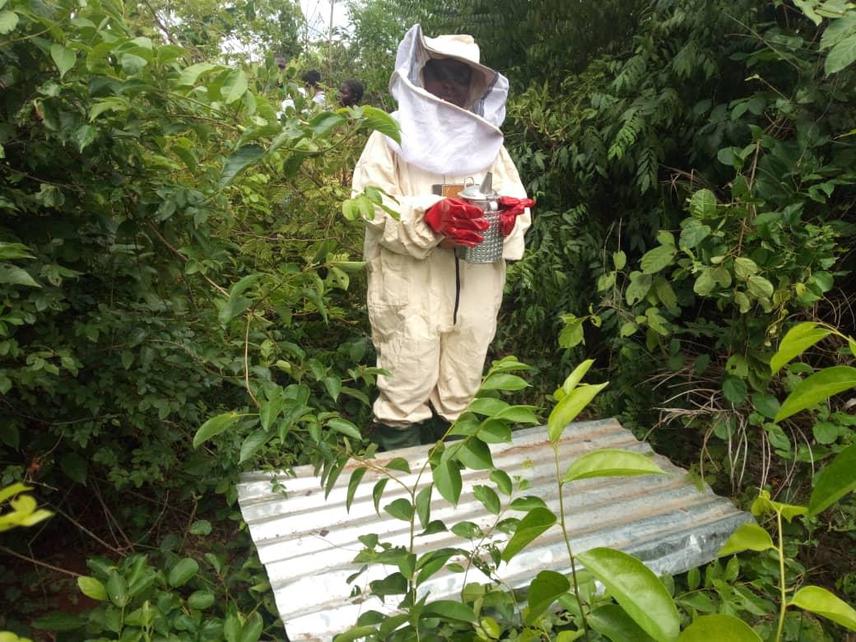Donald Romaric Yehouenou Tessi
Other projects
27 Jan 2023
Preserving Benin's Threatened Tree Species and Improving their Conservation Status in the Context of Climate Change: The Case of Pterocarpus erinaceus Poir
17 Jul 2024
Preserving Benin's Threatened Tree Species and Improving Their Conservation Status in the Context of Climate Change, Phase II
The natural forest of Niaouli is facing immense pressure from human activities despite efforts such as establishing a management entity, discouraging illegal and exploitative use of the forest and the awareness of dangers that may result if overexploitation of the forest continues. This project seeks to promote an approach that will offer a win to win management and sustainable use of the Niaouli natural forest. The project will significantly contribute to securing this forest resource and help to the development of surrounding rural communities with the added advantage that tree nurseries and beekeeping resources will bring to them.

One of the beneficiaries of the beekeeping training wearing the bee suit with the bee smoker in the hands to control the beehive (practice phase).
In recent years, effects of climate change have resulted to much more pressure on natural forest and the need for participative management for its conservation therefore arises. But in forest management, information gap can lead to bad management plan and action. It’s important to take an accurate and actualized survey about the available resource in the Niaouli natural forest in order to put out the state of the species population that are still present. That forest has been less studied for a while but it is still a hot spot of biodiversity, inhabiting a high number of threatened species. The critical financial situation of villagers around that resource needs to be fixed also to get better participative management. The implementation of the Tree nurseries and beekeeping project becomes particularly important when considering that their practices are accessible to everybody with good training in these fields. Beekeeping is also an important and not neglected source of revenue and plays a crucial role in diversity conservation.
The objectives of this project include:
(1) fill the gaps of knowledge about the species composition of the forest by assessing its diversity and population state;
(2) assess the main important Non Timber Products for local population;
(3) reduce the degradation of the forest by rehabilitating some degraded forest part;
(4) improve the living standards of poor local communities in Niaouli areas by promoting and presenting other potential activities opportunities;
(5) raise the awareness of people by commutating on the threats to different species and importance of natural resources.